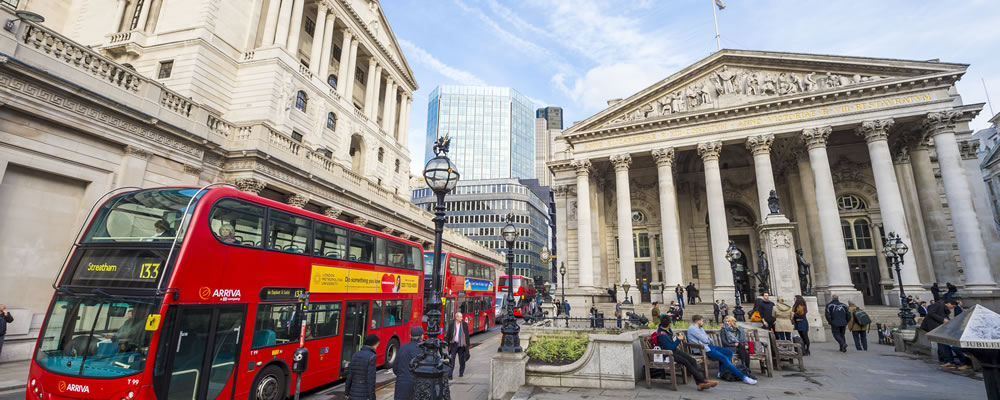- EUR GBP Exchange Rate Drops to 0.88 – Lowest levels since July
- Bank of England (BoE) Leaves Hawkish Hints – Could a UK interest rate hike happen soon?
- EUR Forecast: Eurozone Inflation Ahead – Could influence European Central Bank speculation
- GBP Forecast: UK Retail Sales Next Week – Sterling recovery could continue on BoE hopes
The EUR GBP exchange rate plummeted to its lowest level in over a month, 0.8890, during Thursday trade as investors reacted to the Bank of England’s (BoE) surprisingly hawkish September meeting minutes. The overvalued Euro has been unable to hold its ground.
EUR GBP has gradually fallen since hitting a 2017 high of 0.9306 at the end of August. The pair opened this week at the level of 0.9121 but has since tumbled, and now trends below the key level of 0.90.
Overvalued Euro (EUR) Struggles to Hold its Ground
The Euro’s recent strength continued to fade on Thursday, as investors were largely unfazed by the day’s Eurozone data, instead favouring the recovering Pound.
Following Wednesday’s unsurprising August inflation data from Germany and Spain, French and Italian inflation also met projections.
France’s August Consumer Price Index (CPI) came in at 0.9% year-on-year, while Italy’s came in at 1.2%.
Overall, the unsurprising data had little impact on the Euro as European Central Bank (ECB) officials still express uncertainty about inflationary pressures in the Eurozone.
Despite indicating in its September meeting that the ECB would be making announcements on adjusting quantitative easing (QE) during October’s meeting, officials have been less hawkish on other monetary policies like interest rates.
In recent sessions, officials have indicated that monetary policy may need to remain accommodative to make sure inflationary pressure improves and to tackle the overvalued Euro. According to Peter Praet, the ECB’s Chief economist;
‘The baseline scenario for inflation going forward remains crucially contingent on very easy financing conditions which, to a large extent, depend on the current accommodative monetary policy stance.’
This long-term caution has weighed on any hopes that the ECB would go on to tighten policy beyond QE adjustment within the foreseeable future, which left the Euro less appealing.
Pound (GBP) Surges on More Hawkish Bank of England (BoE)
Thursday’s highly anticipated Bank of England (BoE) policy decision came in just as most analysts expected.
The bank left interest rates and quantitative easing (QE) frozen, and only two members of the Monetary Policy Committee (MPC) voted to hike interest rates.
Unsurprisingly, the two most hawkish MPC members, Michael Saunders and Ian McCafferty, were the two who voted to hike rates.
Despite the unsurprising decision itself, the contents of the bank’s meeting minutes caused the Pound to surge on Thursday afternoon.
The bank’s minutes report stated that Britain’s economy is performing slightly better than the MPC expected. If it continues to grow at this rate, the bank indicates that UK interest rates could begin to tighten more quickly than markets currently expect.
Many analysts and investors took this to mean that there could be a BoE interest rate hike as soon as November. Following the report, bets of a November rate hike jumped to 42% with bets of a December rate hike at 54%.
However, not all economists were convinced. Some believe the Pound has been overbought in reaction to the news, while others think the bank was attempting to talk up the Pound.
Jane Foley, head of FX strategy at Rabobank, had this to say about the BoE report;
‘Many will understandably now think that a rate rise in imminent, but in fact our view is that it is more likely to be next summer. This is because the MPC is still dominated by doves, such as Mark Carney, who are concerned about the impact higher rates could have on real wages so dependent on consumer spending.
Of course, the risks could change, particularly if Sterling were to devalue further, but for now the Bank’s rhetoric appears to have done its job.’
Regardless of analyst warnings, Sterling surged and the EUR GBP exchange rate plummeted.
EUR GBP Exchange Rate Could Continue to Fall
The overvalued Euro and the undervalued Pound could continue to drop in the coming days and weeks as markets adjust positions on the currencies.
While the market outlook for the Eurozone is still optimistic, disappointment about the European Central Bank’s (ECB) cautious tone on Eurozone interest rates is likely to weigh on the Euro’s strength.
Euro demand could be boosted again if the Eurozone’s August Consumer Price Index (CPI) results beat expectations on Monday, but otherwise Euro demand will be limp.
As for the Pound, the British currency has enough momentum to gradually recover for another few trade sessions – at least until Bank of England (BoE) Governor Mark Carney holds a speech on Monday morning.
If Carney gives any guidance on how soon the BoE could tighten UK monetary policy, Sterling will see further shifts in strength.
Next week’s UK retail sales are also likely to have an impact on the EUR GBP exchange rate.



